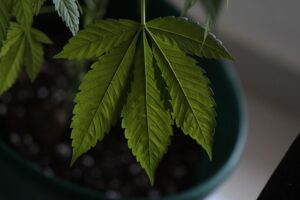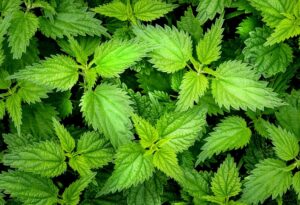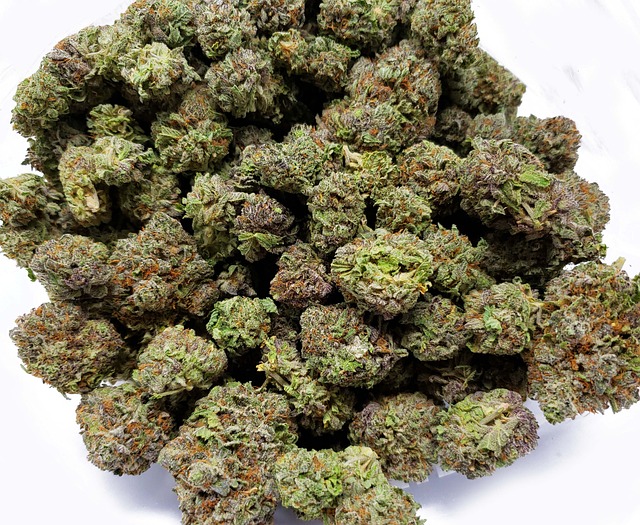
THCA flower, a non-psychoactive compound found in cannabis, is gaining attention for its therapeutic potential, particularly for conditions like pain and inflammation. Unlike its psychoactive counterpart, THC, THCA is celebrated for its anti-inflammatory and neuroprotective properties. When incorporating it into your health regimen, it's crucial to follow thca flower dosage guidelines to safely experience its benefits. Users should start with a low dose, carefully monitor their reactions, and consider increasing the dosage gradually while being mindful of personal factors like body weight and tolerance. Dosage methods can include smoking, vaporizing, or infusing into edibles. It's important for individuals to exercise caution, especially those with pre-existing health concerns or who are taking other medications, and to consult healthcare professionals before use. The therapeutic effects of THCA are attributed to its interaction with the endocannabinoid system. Preliminary research suggests it may offer relief for various conditions, but more research is needed to establish clear dosage guidelines. Ensuring the sourcing of high-quality, tested products from reputable suppliers and adhering to Good Manufacturing Practices (GMP) are key for safety and efficacy. Personalized dosing based on individual needs is essential for optimizing THCA flower's benefits within a wellness regimen.
Discover the transformative properties of THCA flower, a non-psychoactive cannabinoid that’s garnering attention for its potential health benefits. This in-depth exploration delves into the science behind THCA and its role within the cannabis plant, guiding you through the nuances of sourcing high-quality THCA flower and understanding how it differs from other cannabinoid forms. Learn about the entourage effect, proper storage to maintain potency, and dosage guidelines for an optimized experience tailored to your unique body chemistry. Whether you’re new to cannabis or a seasoned user, this article provides a comprehensive guide to safely and effectively incorporate THCA flower into your wellness routine, exploring its effects on mental health, chronic pain management, and more. Join us as we unravel the potential of THCA flower and its place in the future of holistic healthcare.
- Understanding THCA Flower: A Comprehensive Overview
- The Science Behind THCA and Its Potential Benefits
- Sourcing High-Quality THCA Flower: Factors to Consider
- THCA Flower vs. Other Cannabinoid Forms: What Sets It Apart?
Understanding THCA Flower: A Comprehensive Overview
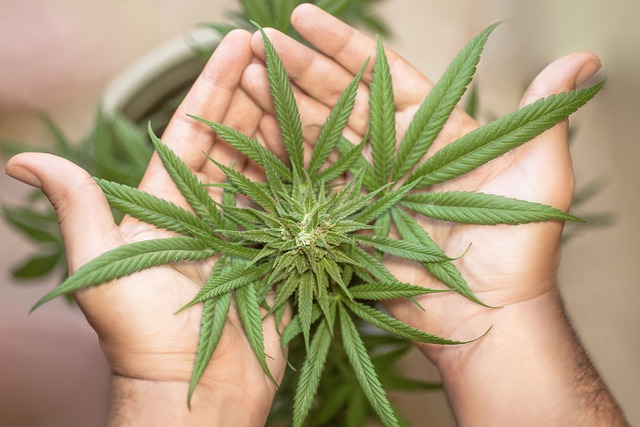
Cannabis enthusiasts and researchers have long been intrigued by the potential of THCA flower, which stands for tetrahydrocannabinolic acid, a non-psychoactive precursor to the well-known compound THC found in cannabis. Understanding the properties of THCA flower is crucial for those interested in its therapeutic and medicinal applications. Unlike its psychoactive counterpart, THCA is known for its anti-inflammatory and neuroprotective effects, making it a subject of interest in various health and wellness regimens.
When incorporating THCA flower into one’s routine, adhering to recommended dosage guidelines is essential. The optimal dosage can vary greatly depending on individual physiology, tolerance, and the specific effects desired. Generally, THCA flower can be consumed in various forms, including smoking, vaporizing, or as an ingredient in edibles. Dosage guidelines typically suggest starting with small amounts to gauge effects before increasing the dosage incrementally. It’s important for users to approach THCA flower with caution and to consult with healthcare professionals, especially if they have underlying health conditions or are taking other medications. By following responsible dosage guidelines, individuals can better explore the potential benefits of THCA flower while minimizing any adverse effects.
The Science Behind THCA and Its Potential Benefits
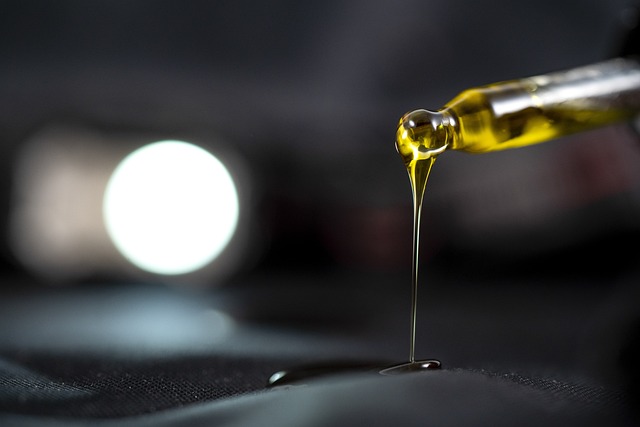
Betulinic acid, a precursor to THCA’s psychoactive counterpart THC, exhibits a range of potential therapeutic properties. Research indicates that THCA may offer analgesic and anti-inflammatory effects without the psychoactive influence when consumed in its raw or extracted form. This presents an opportunity for individuals seeking the health benefits associated with cannabis without the ‘high’ associated with THC. The science behind THCA is rooted in its interaction with the body’s endocannabinoid system, which plays a significant role in regulating pain, inflammation, and immune responses. Preliminary studies suggest that THCA may be beneficial for conditions such as neuropathic pain, multiple sclerosis, and inflammatory bowel disease. Dosage guidelines for THCA flower are still being established due to the relative novelty of its therapeutic use; however, users are advised to start with a low dose to gauge effects before gradually increasing as needed, always in accordance with local laws and regulations regarding cannabis consumption. It is crucial for potential users to consult with healthcare professionals before incorporating THCA flower into their wellness regimen, especially given its potential interactions with other medications. As research continues to evolve, the understanding of THCA’s benefits and optimal dosing strategies may become more refined, offering new avenues for natural health support.
Sourcing High-Quality THCA Flower: Factors to Consider
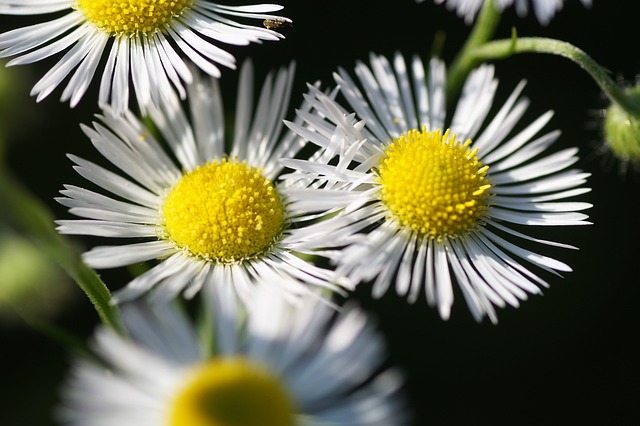
sourcing high-quality THCA flower requires careful consideration of several key factors to ensure both safety and efficacy. Firstly, it’s crucial to choose reputable suppliers who adhere to strict cultivation and handling practices. These facilities should operate under Good Manufacturing Practices (GMP) to minimize the risk of contamination and ensure product potency. Additionally, lab-tested products are essential for verifying the THCA content and absence of harmful substances. Consumers should look for certificates of analysis (COA) from independent, accredited labs to confirm the authenticity and safety of their THCA flower purchases.
When it comes to dosage guidelines for THCA flower, users must consider their unique physiology and experience level with cannabinoids. Dosage can vary greatly between individuals; thus, it’s recommended to start with a low dose and gradually increase as needed while closely monitoring effects. Factors such as body weight, tolerance, and the desired therapeutic or recreational outcome should guide dosage adjustments. It’s also important to note that THCA flower effects can differ from those of its decarboxylated counterparts, so users should educate themselves on the potential effects of THCA specifically before use. Consistent sourcing from trusted providers and adherence to responsible usage guidelines are key to a positive experience with THCA flower.
THCA Flower vs. Other Cannabinoid Forms: What Sets It Apart?
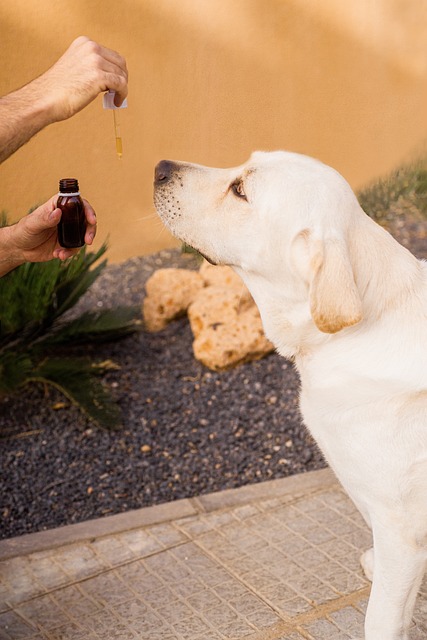
THCA, or tetrahydrocannabinolic acid, is the raw form of THC found in cannabis flowers, which undergoes decarboxylation to become THC upon heating. The THCA flower, rich in its own unique benefits, stands apart from other cannabinoid forms due to its non-psychoactive nature at natural levels and its potential therapeutic effects. Unlike its psychoactive counterpart, THC, THCA is often preferred for those seeking the medicinal properties of cannabis without the psychoactive high. The dosage guidelines for THCA flower are crucial for optimizing its effects and ensuring a safe experience. Typically, users should start with a low dose to gauge individual sensitivity before gradually increasing the amount. Factors such as body weight, tolerance, and desired effect influence the appropriate dosage. It’s important to note the potency of THCA flower can vary greatly between strains, making it essential to consult product labels or a healthcare professional for personalized guidance.
When comparing THCA flower to other cannabinoid forms like CBD (cannabidiol) or CBN (cannabinol), THCA presents a distinct profile. While CBD is non-psychoactive and known for its calming, anti-inflammatory properties, and CBN is a mild psychoactive with sedative effects, THCA offers a unique set of potential benefits. The therapeutic applications of THCA include pain relief, anti-inflammatory properties, neuroprotection, and more. Its distinct terpene profile contributes to the entourage effect, which can enhance or alter the effects of other cannabinoids when used in combination. Therefore, understanding THCA flower dosage guidelines is key for individuals looking to harness its specific benefits as part of their wellness routine.
In conclusion, THCA flower emerges as a subject of significant scientific interest and potential therapeutic value. This in-depth exploration has shed light on its unique properties, distinguishing it from other cannabinoid forms. When considering THCA flower, the key to a positive experience hinges upon understanding the appropriate dosage guidelines, which are crucial for safety and efficacy. Sourcing high-quality THCA flower is paramount, with factors such as purity, potency, and origin playing pivotal roles in ensuring a reliable product. As research continues to evolve, so too will our understanding of how THCA flower can contribute to the well-being of individuals seeking its potential benefits. This article aims to serve as a comprehensive guide for those interested in exploring this intriguing cannabinoid in its most natural form.
